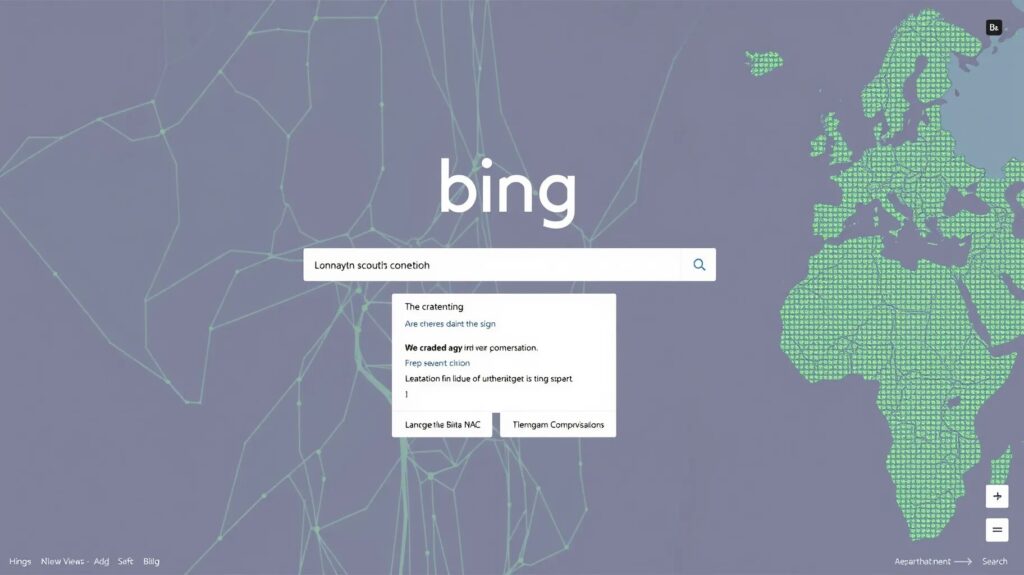Revolutionizing Business with AI: Sustainable Sourcing

In today’s rapidly evolving world, businesses are under increasing pressure to adopt sustainable practices. One of the most significant advancements aiding this shift is the integration of Artificial Intelligence (AI). By leveraging AI, companies can achieve sustainable sourcing, reducing their environmental footprint while enhancing efficiency and profitability.
What is Sustainable Sourcing?
Sustainable sourcing refers to the process of procuring goods and services in a way that respects the environment and society. It involves evaluating suppliers based on their environmental impact, ethical practices, and resource use. This approach helps businesses minimize their carbon footprint and promotes long-term ecological balance.
The Role of AI in Enhancing Sustainable Sourcing
AI technologies, such as machine learning, natural language processing, and predictive analytics, are transforming the landscape of sustainable sourcing. These technologies enable businesses to analyze vast amounts of data, predict trends, and make informed decisions. By doing so, companies can identify the most sustainable and cost-effective suppliers, monitor compliance, and optimize their supply chains.
Benefits of AI in Sustainable Sourcing
Improved Decision Making
AI systems can process and analyze large datasets quickly, providing actionable insights. This capability allows businesses to make data-driven decisions, ensuring that they choose suppliers who meet their sustainability criteria. For example, AI can help identify suppliers with lower carbon emissions or those who use renewable energy sources.
Enhanced Efficiency
AI can automate various aspects of the sourcing process, reducing the time and effort required. Automated systems can handle tasks such as supplier evaluations, contract management, and risk assessments, freeing up human resources for more strategic activities. This efficiency not only saves time but also reduces costs.
Cost Reduction
By optimizing supply chains, AI can help businesses reduce waste and improve resource utilization. Predictive analytics can forecast demand more accurately, ensuring that companies order the right amount of materials at the right time. This reduces excess inventory and minimizes the risk of stockouts.
Case Studies
Unilever’s Sustainable Sourcing
Unilever, a global leader in consumer goods, has successfully integrated AI into its sustainable sourcing strategy. The company uses AI to analyze supplier data, assess risks, and ensure compliance with its sustainability standards. By doing so, Unilever has been able to source raw materials more responsibly, reducing its environmental impact and enhancing its brand reputation.
Walmart’s AI-Driven Supply Chain
Walmart, one of the largest retailers in the world, has implemented AI to improve its supply chain sustainability. The company uses AI to monitor supplier performance, predict disruptions, and optimize logistics. As a result, Walmart has achieved significant reductions in waste and carbon emissions, demonstrating the potential of AI in driving sustainable practices.
Best Practices for Implementing AI in Sustainable Sourcing
Identifying Key Areas for AI Application
To successfully implement AI in sustainable sourcing, businesses should start by identifying the areas where AI can have the most significant impact. These may include supplier selection, risk management, and demand forecasting.
Integrating AI with Existing Systems
It’s essential to ensure that AI systems integrate seamlessly with existing processes and technologies. This integration allows for a smoother transition and maximizes the benefits of AI.
Ensuring Data Quality and Governance
AI relies on high-quality data to function effectively. Businesses should establish robust data governance practices to ensure the accuracy and integrity of the data used by AI systems.
Training and Change Management
Implementing AI requires a cultural shift within the organization. Providing training and support to employees can help ease the transition and ensure that the new systems are used effectively.
Practical Tips for Businesses
Starting with Pilot Projects
Businesses should consider starting with pilot projects to test the effectiveness of AI in sustainable sourcing. This approach allows for the identification of potential issues and the refinement of strategies before a full-scale implementation.
Collaborating with AI Experts and Suppliers
Working with AI experts and suppliers can provide valuable insights and expertise. Collaboration can help businesses navigate the complexities of AI implementation and maximize the benefits.
Monitoring and Evaluating AI Performance
Continuous monitoring and evaluation are crucial to ensure that AI systems are delivering the desired outcomes. Regular assessments can help identify areas for improvement and ensure that the systems remain effective.
Scaling Successful AI Initiatives
Once pilot projects have proven successful, businesses can scale their AI initiatives to cover more aspects of their sourcing processes. This expansion can lead to greater efficiencies and more significant sustainability benefits.
Examples of AI Tools and Technologies
AI-Based Supplier Assessment Tools
These tools use AI to evaluate suppliers based on various criteria, such as environmental impact, compliance with regulations, and ethical practices. They provide a comprehensive overview of supplier performance, helping businesses make informed decisions.
Predictive Analytics Platforms
Predictive analytics platforms use AI to forecast demand, optimize inventory levels, and predict potential disruptions. These platforms enable businesses to plan more effectively and reduce waste.
AI-Driven Risk Management Solutions
AI-driven risk management solutions can identify and mitigate risks associated with suppliers and supply chains. These solutions analyze data to predict potential issues and recommend preventive measures.
Challenges and Considerations
Ethical Considerations in AI Use
While AI offers numerous benefits, it’s essential to consider the ethical implications of its use. Businesses should ensure that their AI systems are transparent, fair, and do not perpetuate biases.
Managing AI Implementation Costs
Implementing AI can be costly, and businesses need to carefully manage these expenses. Starting with small-scale projects and gradually expanding can help manage costs effectively.
Addressing Data Privacy and Security Concerns
Data privacy and security are critical considerations when implementing AI. Businesses should implement robust security measures to protect sensitive data and comply with relevant regulations.
Overcoming Resistance to Change
Resistance to change is a common challenge in AI implementation. Businesses should engage employees, provide training, and communicate the benefits of AI to overcome this resistance.
Future Trends in AI and Sustainable Sourcing
Advances in AI Technologies
AI technologies are continually evolving, offering new possibilities for sustainable sourcing. Businesses should stay informed about the latest developments and explore how they can leverage these advancements.
Growing Importance of Transparency and Traceability
Consumers and regulators are increasingly demanding transparency and traceability in supply chains. AI can help businesses meet these demands by providing detailed insights into their sourcing practices.
Increasing Regulatory Pressures
Regulations related to sustainability and supply chain practices are becoming more stringent. AI can help businesses comply with these regulations by providing accurate data and insights.
Evolving Customer Expectations
Customers are becoming more conscious of sustainability and expect businesses to adopt responsible practices. AI can help companies meet these expectations by improving their sourcing practices and demonstrating their commitment to sustainability.
Conclusion
AI is revolutionizing sustainable sourcing, offering businesses the tools they need to make more responsible decisions. By leveraging AI, companies can enhance efficiency, reduce costs, and minimize their environmental impact. As AI technologies continue to evolve, the potential for sustainable sourcing will only grow, making it an essential component of future business strategies.
Resources
For more information, you can check out these resources:
- Forbes: How AI Can Drive Sustainability in Supply Chains
- World Economic Forum: AI for Good: Leveraging AI to Achieve Sustainable Development Goals
- Harvard Business Review: Using AI to Improve Sustainability
- MIT Sloan Management Review: AI and Sustainable Supply Chains
- McKinsey & Company: Sustainable Sourcing in the Age of AI
By incorporating AI into their sustainable sourcing practices, businesses can not only achieve their sustainability goals but also gain a competitive edge in the market. The future of sustainable sourcing is here, and AI is leading the way.





